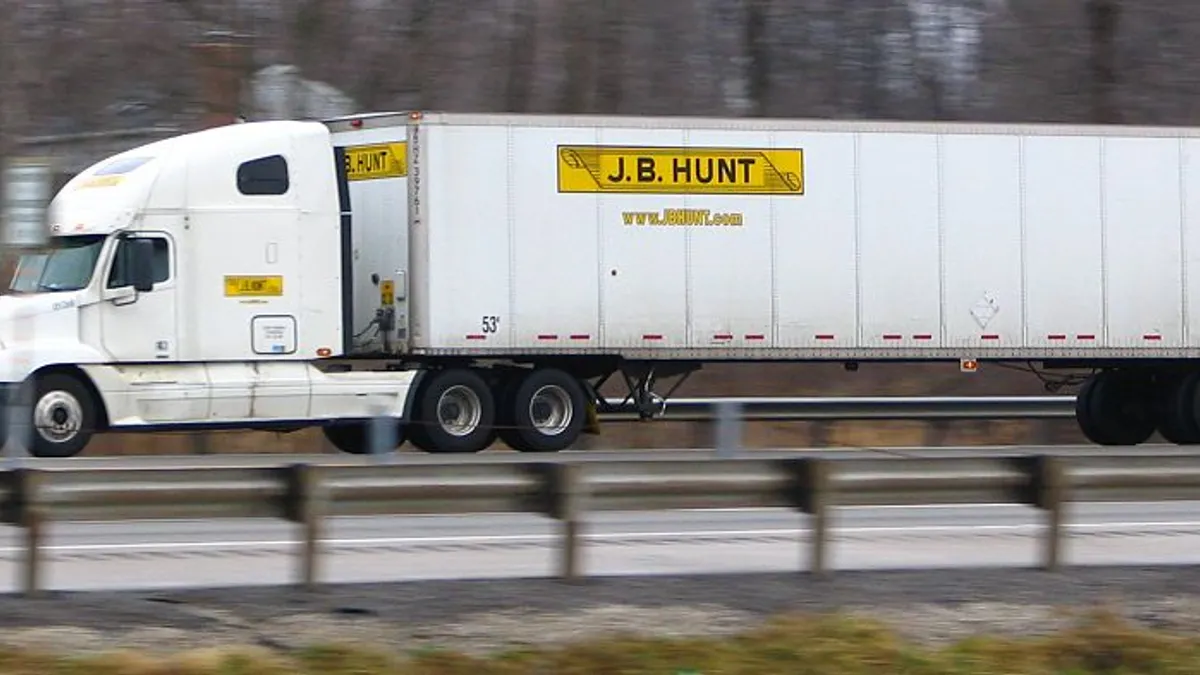Dive Brief:
- J.B. Hunt said its most significant Q3 costs came from disruption caused by congestion in the truck and intermodal networks, and capacity tightness caused by labor issues, company officials told analysts during the Friday earnings call for Q3. A labor shortage of unloading personnel created delays at customer warehouses. And demand for new drivers, for replacement and growth needs, is "abnormally" high, said John Roberts, J.B. Hunt CEO and president.
- Terminal congestion at rail yards has been challenging J.B. Hunt's Intermodal segment, said Darren Field, president of J.B. Hunt Intermodal. Field said the trains tend to run smoothly once they are out of the yard, indicating there are no delays on-route.
- But the LTL and intermodal carrier adjusted to doing business during the ongoing COVID-19 pandemic, said Roberts. Driver turnover decreased, and the company expects to get back to earnings guidance. Revenue and operating income were both up 5% YoY in Q3. Intermodal income was up 22% from Q3 2019.
Dive Insight:
J.B. Hunt is trying to manage a slowdown in delivering and unloading freight, while shipper demand shoots up for retail and warehouse restocking.
The congestion and delays stem in part from labor shortages at customers' warehouses and at J.B. Hunt, said Field. He also said the driver shortage remains a challenge for the industry, and it presented a cost impact in Q3 in the form of declined loads. Because of previous commitments, driver issues, and the capacity constraints and delays it faced, J.B. Hunt turned down 20,000 freight loads in Q3, Field said.
The firm has made improvements in recruiting, Field said, but the company is unsure the changes will show significant impact on Q4 performance. It means, for now, the company has to pass on some new business offers.
"We are turning down thousands of loads per week," said Field.
Field said Q4 and 2021 will see sustained strong demand, with shippers eager to restock inventories.
Capacity issues vex the carrier, frustrating its abilities to add new business, Roberts said. J.B. Hunt had to turn away new freight "not built into our original plans and commitments," Roberts told analysts.
"We are all learning to live with the challenges presented by the virus," said Roberts. "Adrenaline pushed us through."
Roberts said J.B. Hunt has begun to bring workers back to corporate offices, "very slowly and very carefully." But Roberts noted 75% of freight carriers and handlers have been working since the beginning of the pandemic in March













